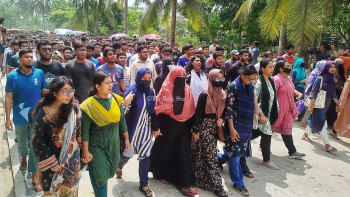Indian SC to examine validity of polygamy
India's top court yesterday agreed to examine the constitutional validity of the prevailing practices of polygamy and 'nikah halala' among Muslims and asked the government and the Law Commission to give their view on the issues.
The SC noted that the five-judge bench which examined instant triple talaq - and pronounced their order in August last year - had kept open the issues of polygamy and 'nikah halala'.
Yesterday, the bench, which also comprises Justices A M Khanwilkar and D Y Chandrachud, said a fresh five-judge constitution bench would be set up to deal with the constitutionality of 'nikah halala' and polygamy.
Polygamy allows a Muslim man to have four wives while 'nikah halala' deals with the process in which a Muslim woman has to marry another person and get divorced from him before being allowed to marry her divorcee husband again.
One petitioner, a lawyer, has argued that while Muslim personal law allows a man to have multiple wives by way of the temporary marriages, the same permission is not extended to women and therefore the law violates the fundamental rights of Muslim women.
In a historic ruling in August last year, the five-member bench of the apex court, by a majority of 3:2, had held instant triple talaq as unconstitutional.
The bench was hearing at least three petitions challenging the practices on various grounds including that they violate the right to equality and gender justice.

 For all latest news, follow The Daily Star's Google News channel.
For all latest news, follow The Daily Star's Google News channel. 



Comments